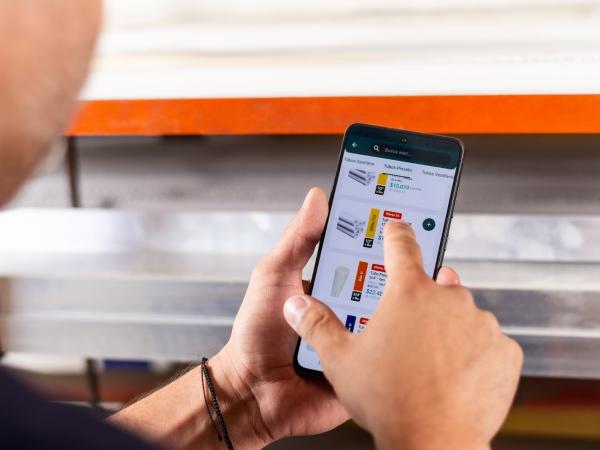After three years in the market with a presence in Mexico, Colombia and Brazil and reaching more than 20,000 monthly shipments, TUL is evolving in the Marketplace.
(Join our WhatsApp channel here and get all economic information about Colombia and the world).
Latin America’s largest B2B startup with 50% month-on-month growth is transforming itself with the goal of decent housing in Latin America through technology. This way, TUL reaffirms its position of always being in the construction industry and introducing new technologies for the benefit of its clients.
(Read: Tul Closes $181 Million Series B Investment Round).
“The TUL marketplace is a natural evolution of our brand. This decision brings us closer to our mission to contribute to ensuring that every Latin American has a decent home by optimizing the construction value chain,” says Enrique Villamarín Lafaurie, CEO and co-founder of TUL, who adds that “By the end of TUL’s first year on the market, we expect to have more than 300 distributors actively selling on our platform and nearly 10,000 buyers every month.”
The first phase of TUL’s business model aimed to offer its customers a new way to purchase building materials and manage their business through technology available 24/7. To achieve this goal, the platform has developed a set of in-house technology tools to facilitate, speed up and reduce the cost of distribution of construction tools and materials to hardware stores and construction sites.
During these three years of operation, TUL managed to perfect these technological tools, designed specifically for the needs of the construction industry in Latin America. With this knowledge gained, the platform is ready to start its new phase.
(You may also be interested in: Hardware, key pieces in restoration).
November 2023 marks the beginning of TUL’s evolution as the largest construction market in Latin America. This comes after it has perfected its technology for internal use, with more than 8,000 shoppers and 30,000 app visitors using it each month. The process will begin with a beta phase that will expand in features and scope, with the goal of always providing the best possible experience for app users.
News from the TUL marketplace
In order to become an ally in which construction professionals find an increasing variety of supplies for their business, TUL will evolve towards a model that allows other distributors to offer their products on the same platform. TUL will become a digital storefront and online sales channel to help increase sales, conquer new markets, customers and geographies.
“We will digitize a process that today hardware retailers do in a very manual and time-consuming way, which is to call distributors one by one to compare the price, minimum quantity and payment methods of the products they need,” points out Enrique Villamarín Lafaurie, CEO and co-founder of TUL.
Through the TUL Marketplace, construction professionals will be able to compare the options available to them much more quickly and easily and find the best alternative for their specific needs.
“For our current customers, TUL will no longer be a distributor with an app and will evolve as the easiest and most convenient tool to compare and find the best price and terms available to them at that moment,” says Villamarín.
In the near future, TUL plans to license its internal technologies to market participants so that they themselves can offer a better level of service to TUL’s customers and thus gain greater logistical and economic efficiency that increases their profitability.
Benefits for distributors
TUL’s transition to a marketplace model offers important benefits to distributors in the building materials industry, including greater exposure and brand positioning, as by entering the TUL marketplace, these distributors will be able to significantly increase their market exposure.
In addition, they will have access to TUL’s extensive customer base and marketplaces, which will have a simplified transaction experience. With TUL Marketplace, the distributor will not have to worry about collecting and normalizing his portfolio.
In addition, TUL will provide distributors with access to valuable data on customer purchasing behavior and preferences to support informed decision-making. Finally, by being part of the TUL Marketplace, distributors will be able to offer competitive prices and terms in an environment where buyers can easily compare offers from multiple suppliers.
The evolution of TUL aims to get closer to its mission of contributing to the development of decent housing in LATAM. “By creating a marketplace where hardware sellers and professionals can find ever-better options to supply their businesses and projects, we help eliminate market inefficiencies that lead to shortages and unnecessarily high prices in Latin American neighborhoods.” Villamarín Lafaurie retires.

